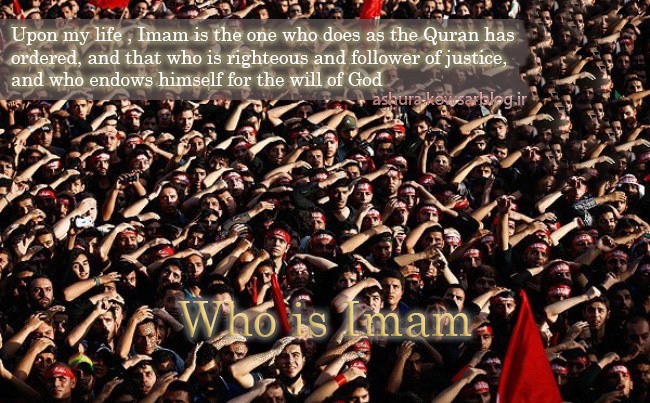One of the events on the fifth day of Muharram
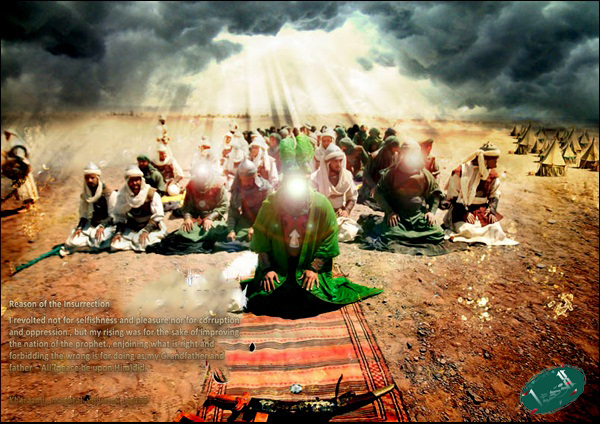
In the name of Allah, the Compassionate, the Merciful
Imam Hussein (AS) fireproof:
Avoid apology is what causes the believer is not bad and does not apologize.
(Bihar al-Anwar, vol 75, p 120)
Fifth day of Muharram 61 AH.
Hasin ibn Namir entered Karbala
Hasin ibn Namir according to order of Ubaidullah bin Ziyad entered Karbala with four thousands cavalries.
Avoiding to help Imam (AS).
Obaidullah bin Ziyad [damned] in this ordered a man who called ibn Qays to stand in the way of Karbala and Imam Hussein and kill anyone who intend to join and help Imam (AS) and his troops.500 people accompanied this damned person.
But considering all the limitations to join the army of Imam Hussein, a man named “Amer bin Abi Salama” eventually led himself to Imam (AS) and was martyred on Ashura.
Source: Shiite calendar book
Hazrat Ali Asghar's Biography
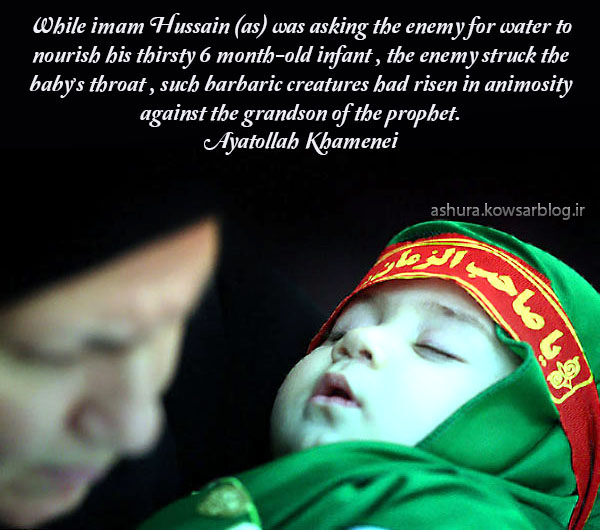
A Few Lines About Hazrat Ali Asghar
Hazrat Ali Asghar’s Biography
Abdullah ibn Hossein, known as Ali Asghar, is the son of Imam Hossain. His mother is
Robab, daughter of Emra al-ghays. His sister is Sakineh. Abdullah was born in Medina.
The Most Innocent One in Karbala
Ali Asghar was an outstanding example of innocence. He was a little child, incapable of
fighting against the enemy.
A Heavenly Infant
The decision to kill Imam Hussain
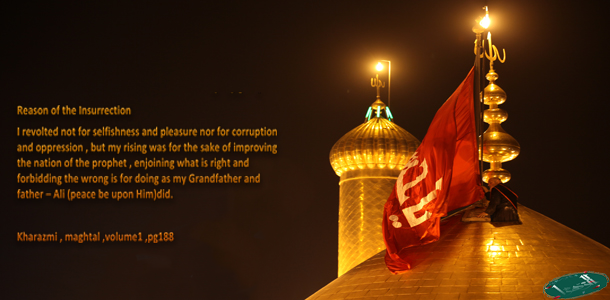
Umar ibn Sa’ad entered Karbala
In this day cursed Omar Ibn Saad with four or six or nine thousand horsemen, entered Karbala to kill the son of the Prophet (pbuh) and against him set tent camp against Imam Hussein (AS). ( Ibn Sa’d entrance in Karbala is also quoted on the fourth day.)
Imam Hussains Virtues
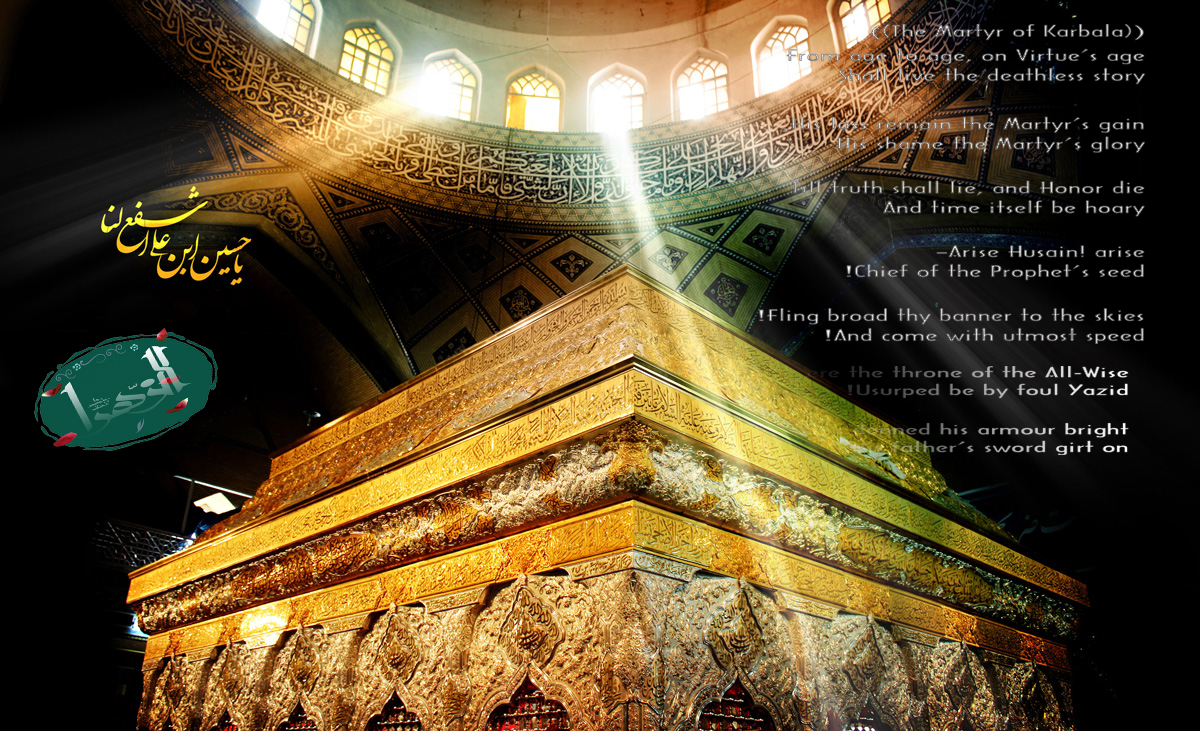
Imam Hussains Virtues
Birth and Martyrdom
Imam Hussain (a.s.) was born on the third or fifth of Sha’ban in the fourth year A.H. in Medina. His father was Ali Ibn Abi Talib (a.s.) and his mother was Fatimah (s.a.), Prophet Muhammad (S)’s daughter. His nickname was Abu ‘Abdullah and his most famous titles were Tayyib, Sayyid, Sibt, Wafi, and Mubarak.
At his birth time, Gabriel was revealed to the Messenger of Allah (S) for congratulating and brought Allah’s message to the Prophet (S) to name the infant Hussain. The Messenger of Allah (S) recited ‘adhan in his right ear and ‘iqamah in his left ear. On the seventh day after Imam Hussain’s (a.s.) birth, two sheep were sacrificed for him and the meat was divided among the poor.
Imam Hussain (a.s.) lived fifty six years and some days, according to some narrations. He lived six years and several months with Prophet Muhammad (S) before the Prophet (S)’s demise, thirty years with his father, ten years with his brother Imam Hasan (a.s.) after his father’s demise, and ten years after his brother’s demise. He was martyred on the day of ‘ashura (tenth of Muharram) in the year sixty one A.H. in Karbala and his holy body was buried in that land.[1]
Imam Hussein is the symbol of morality
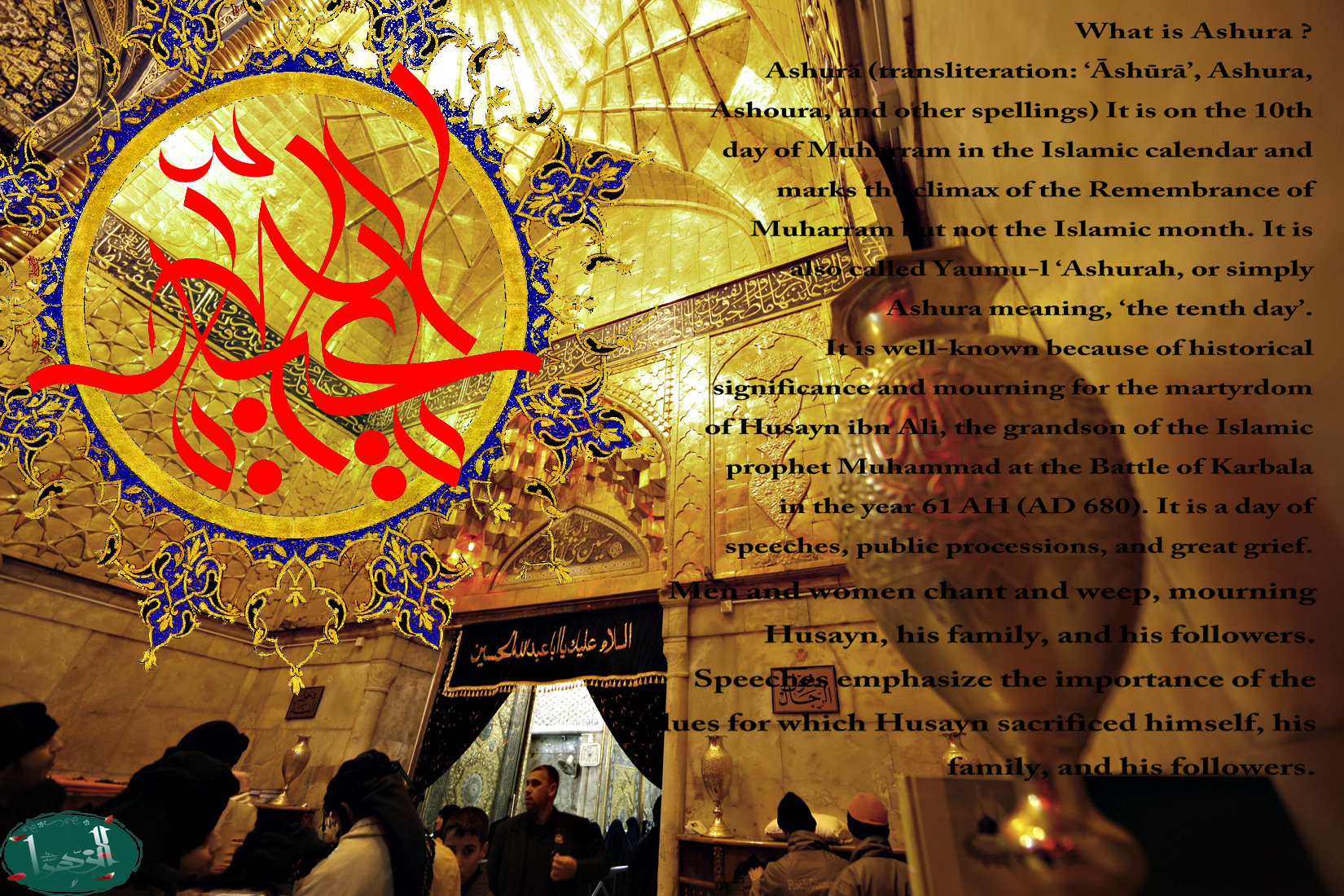
It is usually thought that Islam views God as a heartless Ruler of the world, an angry Judge, and a wrathful Lord who is looking meticulously for a wrongdoer to punish them. For those who have thoughtfully read the Quran only once in their lifetime it is very easy to discard this view beyond any doubt.
However, for those who have not carefully read the Quran, or do not have the necessary means and knowledge to analyse its verses, there stands, in the living memory of the history, an episode which, very clearly, epitomizes the notion of love between the creator and the created, and the sacrifice and suffering that could be endured readily and contentedly by a human being for the sake of the beloved God.
This episode is the event in which Hussain, the grandson of the Prophet of Islam, offered not only his soul and his flesh to the Lord, but that of his sons, his nephews his cousins and his closest friends, and bore the grief of the foreseeable capture of his wife, his daughters and his sisters. This happened on the 10th day of Muharram in a land called Karbala in the year 682 AD.
As the grandson of the Prophet and someone who was very much adored by him, Hussain could have lived a very comfortable and well-heeled life after his grandfather, much honoured and revered by his contemporaries. However, he was devoted to the cause of the Lord, concerned about the guidance that was revealed to his grandfather and eager to make sure that the path of love towards God was not obstructed by voracious, materialistic type of people who had joined Islam only to fulfil their mean and meagre worldly ambitions.
And he did well. On one single day he demonstrated a degree of love and sacrifice towards the Lord that could hardly be paralleled by any similar incident in the history of mankind. He loudly cried his dissatisfaction of what was going on in the name of the Lord and with recourse to the authority of his grandfather; a cry that can be heard even today through the long stretched tunnel of history.
Hussain used to say in his supplications:
“My Lord! You are the One who removes all others from the heart of those whom You love, in a manner that they do not love but You, and do not seek refuge from anyone but from you; You are their intimate company when the trials of the world frightens them. My Lord! Those who have lost You, what do they find, and those who have found You, what do they lose?”
Hussain had nothing to loose since he had found a Love that gives life to everything.
The Revolutions Causes of Imam Husain
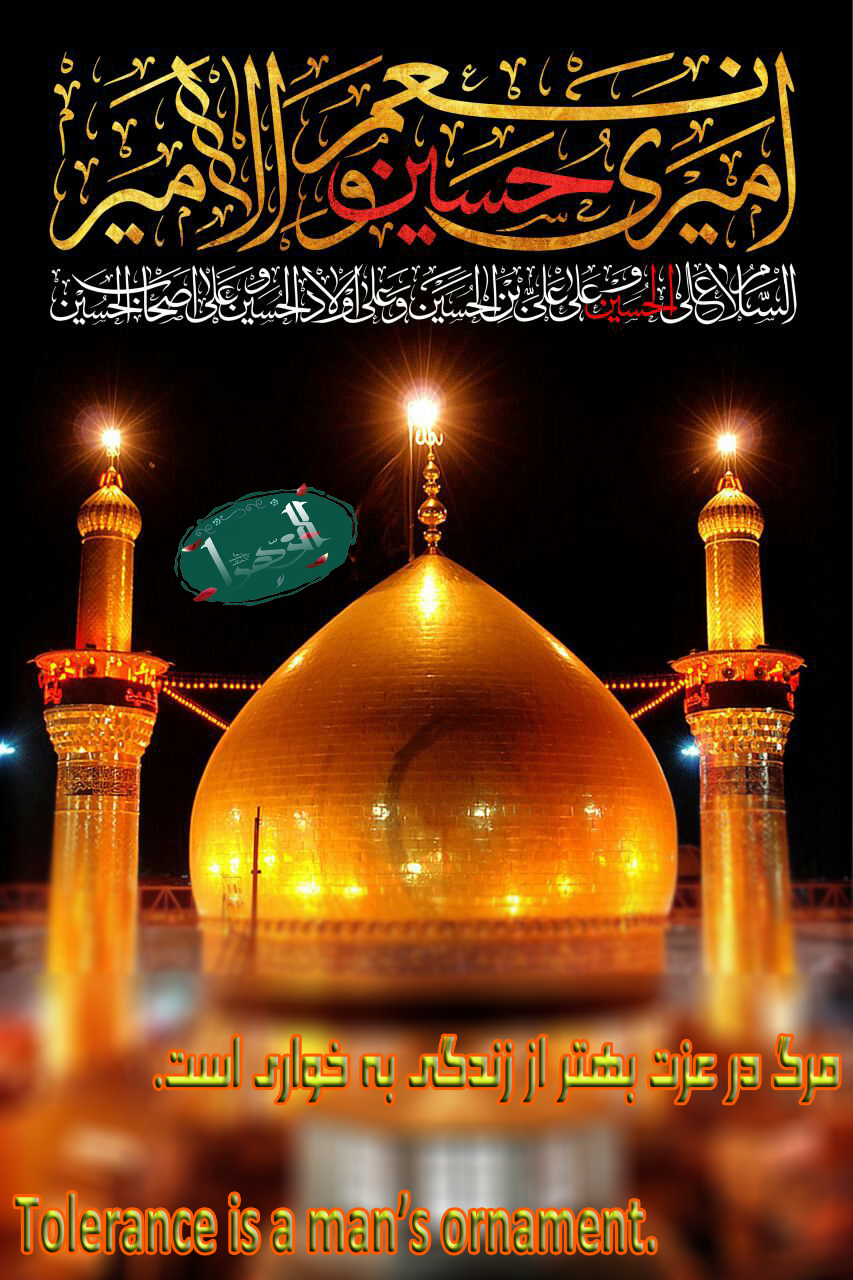
The Revolution’s Causes
The motives for revolution were numerous. Some were direct grievances of the general people while others were ideological. The following were the most apparent:
1. There were many defects and drawbacks but the most urgent one was the attempt to distort Islamic concepts and ideals. This aspect was of extreme importance and preoccupied the minds of responsible Muslims at the time. The fabrication of Hadith was all too common, which had a poisonous effect on the lives of Muslims. This, was giving the Umayyads for a while a free hand to carry out their inhuman deeds and policies. The mask of religion which they used to hide their un-Islamic conduct was extremely dangerous. In the long run, this could have changed Islamic concepts of ruling and inverted social ideals. Thus stripping off this mask and exposing the true Umayad’s picture was of utmost necessity.
2. The State’s structure was built on an un-Islamic basis. Quraish was born to rule, Arabs were second class citizens, and non-Arabs constituted the base of the society’s pyramid. That was the general social picture of, the Muslim world under the Umayyads dynasty. Freedom of thought and expression were denied, When one dared to express an opinion contrary to that of the Umayyad’s, prison became his home, his property was robbed, and oven his life was at stake.
3. The Umayyads considered the Muslim world to be their own property. The aims (Zakat) and other Islamic dues were collected, but no-one knows or can question where that money went. Large gifts and donations were given to few cruel governors and tribal chiefs in order to secure their allegiance. Large sums of money were wastefully spent on racing, gambling, wine-making, and buying slave women to entertain high-class people in power. Hence, the majority of Muslims were left near starvation level while the ruling group all enjoyed the social and material privileges.
